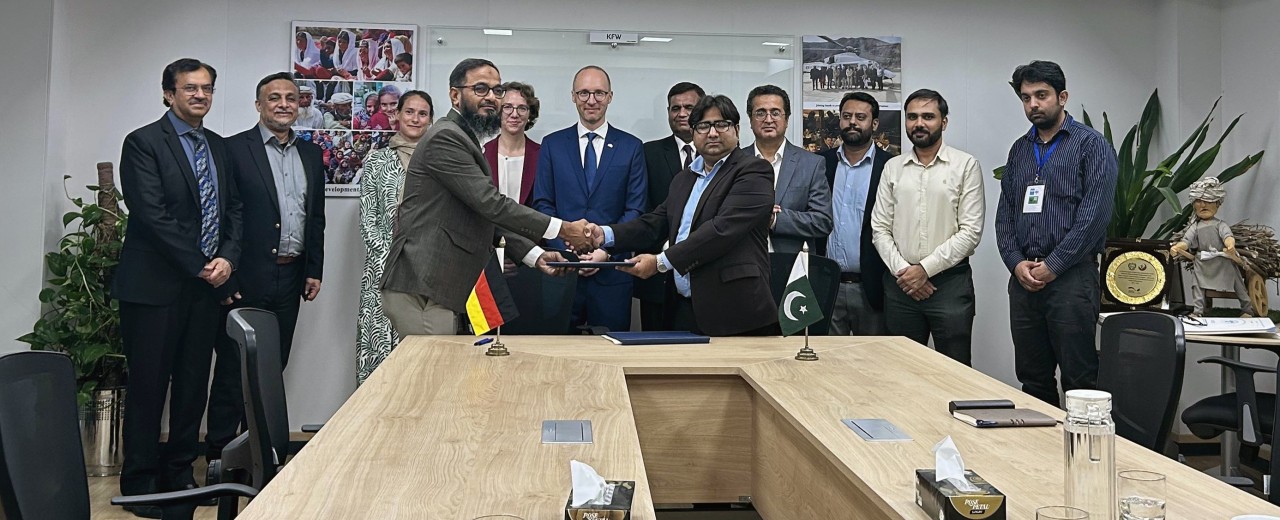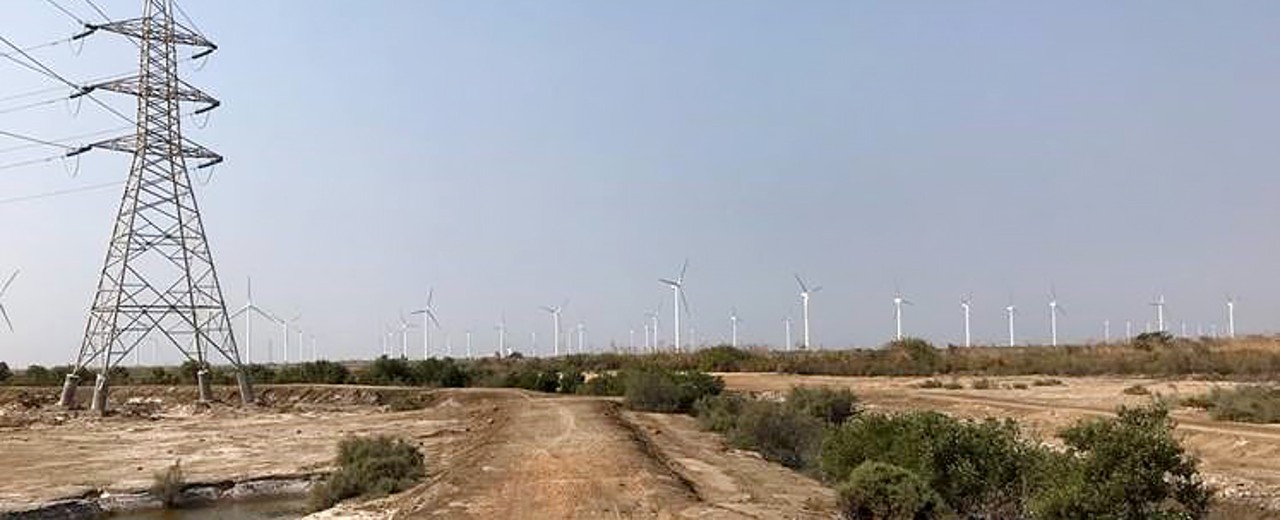News from 2025-07-10 / KfW Development Bank
Clean energy for Pakistan with top technology from Germany

Pakistan has reached an important milestone on the way to a sustainable, climate-friendly energy supply. As part of a programme to promote renewable energies and improve grid connections, a contract has now been signed for the construction of a substation in the Gharo wind corridor. The contractual partners are the National Grid Company of Pakistan (NGC) as project sponsor and the German company Siemens, which will contribute its many years of experience and technological expertise to the project as general contractor. The investment is being financed by a loan of 27 million euros from funds provided by the German Federal Ministry for Economic Cooperation and Development (BMZ) via KfW Development Bank. The project is part of a broader programme under the Pakistan-German Climate and Energy Partnership, which KfW is promoting on behalf of the BMZ.

The substation plays a key role in transmitting the energy generated in the wind corridor and feeding it into the supply grids. By overcoming existing grid restrictions, it also makes an important contribution to a more stable, sustainable energy supply in the country. In addition to the expected positive effects on the environment and climate by reducing CO2 emissions, the country's dependence on fossil fuels will also be reduced. In addition, the increased grid capacity will help to meet the growing demand for energy and thus further pave the way for Pakistan's economic development. Numerous new jobs will be created by the investment, with additional impetus for economic growth in the region.
At the signing ceremony, KfW Office Director Sebastian Jacobi emphasised the support of the Pakistani government in achieving its climate goals. Janine Rohwer from the German Embassy pointed out the relevance of these projects for the IMF reform programme, which is supporting Pakistan. Germany sees the improvement of the transmission grid as part of the cost-related reforms to which Pakistan has committed.
In addition to the main components, including the substation, the entire programme also comprises accompanying measures to support the Pakistan Electricity Supply Authority in the proper operation and maintenance of the facilities. Among other things, this also involves ensuring appropriate working conditions and adequate environmental and social management.

Share page
To share the content of this page with your network, click on one of the icons below.
Note on data protection: When you share content, your personal data is transferred to the selected network.
Data protection
Alternatively, you can also copy the short link: https://www.kfw-entwicklungsbank.de/s/enzBWrMC.DRTA
Copy link Link copied